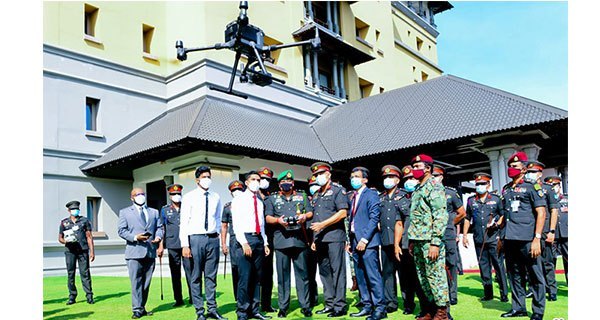Sri Lanka Police, with the assistance of the Air Force, began deploying drones on Friday evening, November 12, in an effort to identify violators who broken quarantine laws.
Police spokesman Ajith Rohana told reporters that 15 people had been arrested on charges of violating the quarantine law during the first operation using drones.
Last May, France’s highest administrative court ruled that police should immediately stop using drones to monitor public respect for “lockdown” laws, ruling that it was a violation of privacy rights.
In early March, France used drones with cameras to track people who violated social distance advice in the face of an epidemic. Recognizing the allegations made by human rights groups, the court ruled against spying.
The French government has told the court that the drones will not be used to identify people, but will only be used to enforce locks and identify public gatherings to disperse large crowds.
According to foreign media reports, the police told the court that the images received from the drone camera were transmitted to the command center at that time, which enabled them to make decisions such as transmitting messages to the people in the area through the drone loudspeaker.
In response, a French court ruled that drones had a zoom and could fly less than 80 meters if needed, and that there was no technology to prevent people from collecting personal data.
Based on the April 2016 EU Decree on the Use of Personal Data by Authorities, the Court has ruled that data collected as part of this process should be treated as personal data.
Therefore, the Court further stated that under the Data Protection Act, “according to the rational and public opinion of the National Commission for the Protection of Data (Article 31)”, the power to use such data can be vested only after an order of the competent Minister.
In the absence of a regulation authorizing the government to use such data, a French court has ruled that the processing of such data on behalf of the government constitutes an “illegal attack on the right to respect the right to life”.
There has been a lot of talk on social media about investing in high-tech reconnaissance aerial cameras instead of spending on equipment, including PCR machines and beds, which are in short supply for people at risk of the plague.
The use of drones to suppress corona raises a number of issues, including privacy, ethics, data retention and the relevant legal framework, says Sanjana Haththotuwa, a doctoral student at the University of Otaga in New Zealand.
Sanjana Haththotuwa, a teacher under state secrecy on how to use drones in the media, was quoted in a Twitter message quoting a ruined video on a private TV channel as saying that the military was equipped with heat-sensitive night vision capabilities, such as the Senmus H20 (Zenm). That drones have been used for filming.
Amantha Perera, a senior journalist doing postgraduate research at the University of Central Queensland in Australia, says Sri Lanka is following China’s example.
“Sri Lanka is following China’s example in using drones to enforce police locking,” Amantha, a pioneer in introducing drone camera technology to Sri Lankan journalists.
Although drones are often used worldwide as a weapon against anti-government suspects, as a search tool or as a food delivery agent, the corona virus has been playing a new role since the outbreak.
In countries such as Rwanda, Ghana and Chile, drones are used to deliver medical supplies to endangered and often isolated individuals and communities, while drones are used to disinfect public spaces in China and India.
